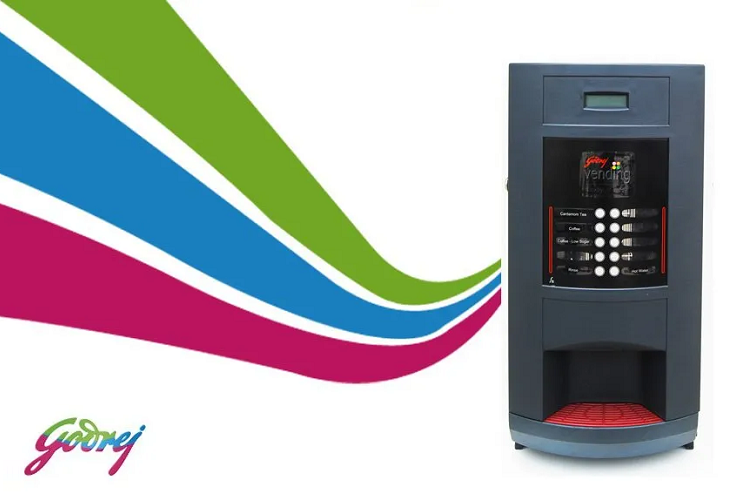Vending machines are convenient for consumers in need of their regular cup of coffee to get started. Research and Markets reports that the global vending machines market is expected to reach $146.6 billion by 2027, indicating more manufacturers are entering the industry. New models are set to be released yearly. Before investing in a vending machine, buyers must consider the factors affecting costs and additional expenses.

Here is a breakdown highlighting these factors to help businesses make informed decisions when shopping for a unit.
Vending Machine Brand
The reputation of a tea coffee vending machine manufacturer significantly impacts the price since the customers already have a perception of what to expect. Well-established brands with a solid track record of making reliable and high-quality machines charge more for their products.
These brands constantly improve their products to ensure users get highly advanced features denoting durability and a satisfying user experience. Businesses are more open to buying from a brand trusted by others within the same industry.
Machine Size and Capacity
Size and capacity are some considerations a manufacturer prioritises when pricing their tea coffee vending machine. Larger vending machines with more beverage capacity will have a higher price tag than smaller ones.
Coffee vending machines with more than three canisters can hold more water, milk and ingredients to prepare speciality beverages. Their profitability makes these high-capacity vending machines great investments for high-traffic areas. In addition, machines with smaller capacities cost less because they only hold a small amount of beverages for low-traffic areas.
Type of Machine
Coffee machines come in all types and sizes, two main contributing factors in the overall pricing. Standard vending machines include beverages, snacks, and specialised machines dispelling healthy food products. There are unique features, configurations, capacity, and build quality that impacts the vending machine cost.
Machines that dispense more than one beverage will cost more than a specialised machine that only makes coffee. Since these machines have multiple components and sections or specialised functionalities, they will have a higher price tag than ones with minor components.
Vending Machine Condition
Depending on their preference, businesses can buy new or used vending machines. The condition of the machine plays a crucial role in determining the cost. Newer machines are costlier because they are in pristine condition and incorporate the latest technology with high-quality features and components.
Conversely, used machines are low-priced but may require repairs and refurbishments to restore them to their original condition. Although they are great for saving money, buyers must consider the potential maintenance and longevity of the machine during purchase.
Technological Features
The ongoing technological advancements across industries are slowly transforming vending machines. New technological features have made these machines more exciting and resulted in increased prices also. Some advanced features to expect in a vending machine include interactive interfaces, cashless payment processors, programmable settings, cup timers, and access control, significantly affecting a buyer’s price for their tea coffee vending machine.
These features improve user experience, operational efficiency and allow business owners to keep accurate sales records. Manufacturers factor in the cost of research, development and implementation when pricing these machines.
Quality of Machine Materials
The materials used to make a coffee vending machine determine its quality and durability, which may affect the price. High-quality machines built from high-grade materials are sturdier and have components that can withstand continuous operations for years. In addition, the quality materials minimise the likelihood of breakdowns and frequent repairs since the materials are rust-and corrosion-proof.
Hence, businesses will spend less money on maintenance and repairs. Such machines have a higher price tag since they will sustain business operations and maximise profitability.
Support and Maintenance
Vending machine manufacturers often include costs for ongoing support in the vending machine cost. These support services include timely maintenance, technical assistance, and reliable OEM parts repairs. Maintaining vending machines is costly if a business decides to outsource external services.
It is also easier for businesses to lose track of their maintenance schedules, affecting their performance. Nonetheless, most buyers are comfortable paying for these packages for the peace of mind that comes with reliable support.
Installation Location
The location and installation requirements of a tea-coffee vending machine may impact its price. Whether for use in the office, cafeteria, manufacturing industry, or institution, it is crucial to consider where the machine will be installed.
Some locations have specific regulations and space constructions requiring additional features and component investments. Some machines may need water filters, change of power outlets and other on-site modifications that may increase the buying costs.
In a market with different types of vending machines, numerous factors affect the prices of these units. The abovementioned factors explain why prices change constantly to help businesses exercise their options. They play a significant role in setting a sustainable budget that fits particular financial situations for increased profitability. Consulting a vending machine manufacturer or suppliers provides operators with first hand information about a particular machine and how to handle it.


